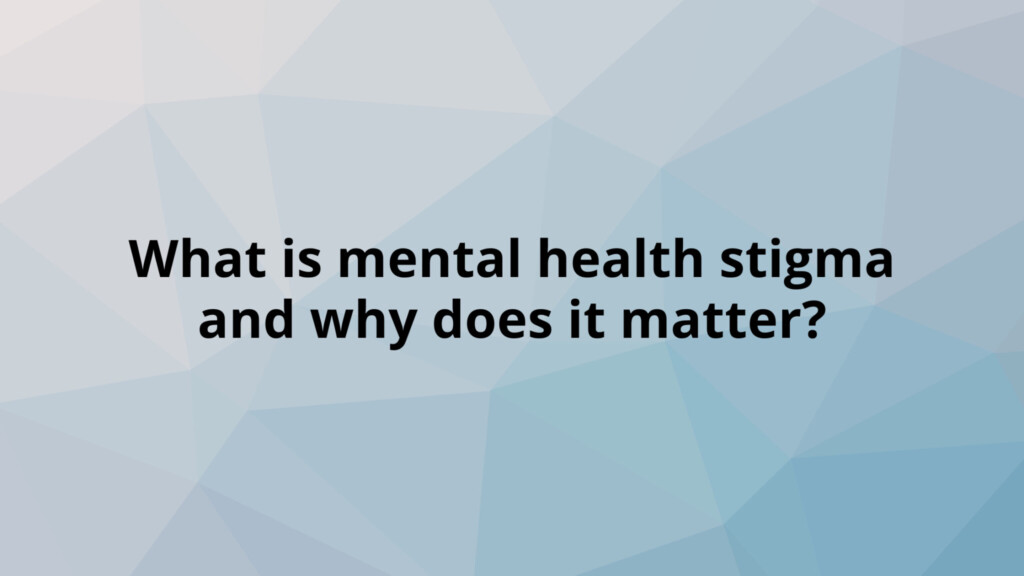
Stigma refers to negative attitudes, beliefs, and behaviours towards people with mental health challenges. It manifests in various ways, from discrimination and social exclusion to internalised feelings of shame and worthlessness. Understanding stigma is crucial because it affects individuals’ willingness to seek help, adhere to treatment, and recover.
It may affect the way we see people and how we relate to them.
Stigma matters because it:
– Prevents people from seeking help due to fear of judgment.
– Leads to social isolation, affecting relationships and support systems.
– Impacts employment, housing, and education opportunities.
– Contributes to worsening mental health and reduced quality of life.
By recognizing the existence of stigma and its harmful effects, we can start taking steps to challenge and change these attitudes. Education and open conversations are key to reducing stigma and creating a more supportive environment for everyone. This incorporates challenging our own bias including unconscious bias.
Download the helpful guide
Education and open conversations are key to reducing stigma and creating a more supportive environment for everyone. This quick guide will help you get started.
Download your copy of the helpful guide.
What’s on during Challenging Stigma Week
Share

